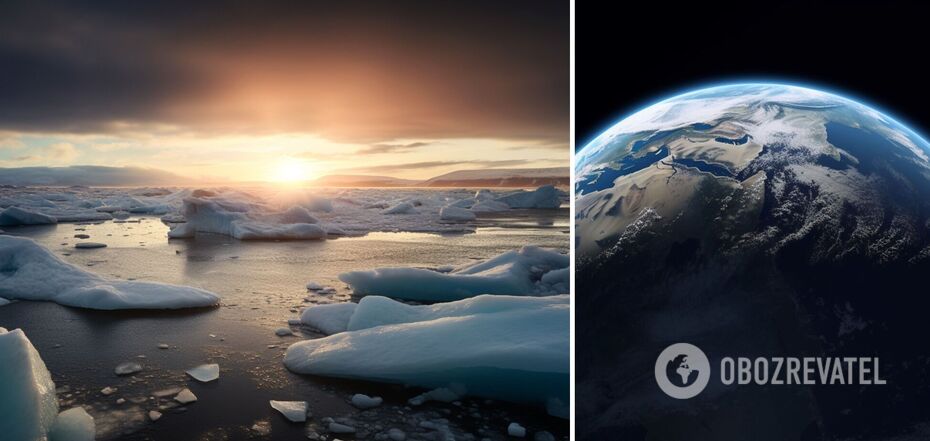Life
Glacial melting has reached 'catastrophic' rates: this could be a verdict for humanity
The glaciers of Greenland and Antarctica are losing three times as much ice annually as they did 30 years ago. Scientists talk about the hyper-acceleration that has taken place over the past few years.
They described the results of their observations in an article for the scientific journal Earth System Science Data. This accelerated melting can lead to the release of chemicals that have been emitted into the Earth's atmosphere for decades by humanity.
Scientists obtained their disappointing data from 50 different satellites, which showed that Greenland's melting has accelerated in recent years. Thus, from 2017 to 2020, Greenland's glaciers melted 20% faster on average than at the beginning of the decade. Compared to the early 1990s, the annual reduction was seven times higher.
The study's co-author, Ruth Mottram, a climatologist at the Danish Meteorological Institute, called the new figures "truly catastrophic".
"We are losing more and more ice from Greenland," she said.
In turn, the study's lead author, glaciologist from the University of Leeds in the UK, Ines Otosaka, confidently states that the main reason for the accelerated loss of ice cover is climate change caused by human activity.
According to the study, during 1992-1996, the two ice sheets, which contain 99% of the world's freshwater ice, shrank by 105 billion tonnes per year. But in 2017-2020, the total melting increased to 372 billion tonnes per year. And while the Antarctic used to melt at an accelerated pace, now it is Greenland.
"This is a devastating trajectory. This rate of ice loss is unprecedented for modern civilisation," commented Twila Moon, deputy lead scientist at the US National Snow and Ice Centre.
Scientists also found that 7.6 trillion tonnes of ice have melted since 1992. This is enough to flood the entire US territory by almost 0.9 metres or submerge France by almost 15 metres. This is not happening only because the world's oceans are so huge.
Otsaka says that scientists use completely different methods for their research: from satellite and ground observations to radar and computer simulations. They all show the same thing - the melting of the ice sheet is accelerating.
In Greenland, an average of about 257 billion tonnes of ice melted annually in 2017-2020, compared to 213 billion tonnes in 2012-2016.
The latest data, as Mottram notes, also showed that in some parts of Antarctica, where there is much more ice than in Greenland, there is a slowdown in melting. But this is not a change in the trend, but only a short-term response to fleeting weather changes. The overall long-term trend, scientists warn, still shows an acceleration of melting in Antarctica.
"Although mass loss from Greenland is outpacing that from Antarctica, there are worrying wild cards in the south, including the behaviour of Thwaites Glacier, nicknamed the Doomsday Glacier," said Mark Serrese, director of the US Snow and Ice Centre, who was not a participant in the study.
Walid Abdalati, an ice researcher at the University of Colorado and former NASA chief scientist who was not part of the study, said that glacial melting may seem like something far away and not a threat to people, but it is not.
"Sea level rise (due to glacial melting - Ed.) will lead to the displacement and/or financial impact on hundreds of millions of people, if not billions, and will likely cost trillions of dollars," Abdalati told Phys.
He added that the study "is not so much surprising as it is worrying".
Earlier, OBOZREVATEL told about the forecast of scientists who announced a new threat to humanity due to the melting of glaciers.
Subscribe to OBOZREVATEL's Telegram and Viber channels to keep up with the latest news.



























